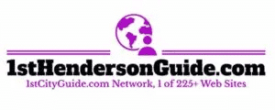Understanding and Using GAAP in Your Accounting - Henderson Edition
2024.7.20
No business venture can succeed without accounting. Generally Accepted Accounting Principles (GAAP) are an indispensable guide helping make sure your company’s financial practices are sound and won’t cast doubt on credible presentations of your business’s financial results. GAAP refers to the commonly accepted standards of accounting under which financial information is recorded and communicated in business, particularly the financial activities of a business.
What is GAAP?
GAAP refers to a set of rules many accountants use to draw up financial reports making sure they are accurate and comparable on a like-for-like basis. Investors and banks, for example, wish to make rational decisions based on the information in the financial reports. GAAP captures a broad set of accounting practices, from how a company should record revenue to how it organizes information on a balance sheet (which kind of expenses, for example, must go on which line) to what it identifies as significant enough to mention.

Benefits of Bookkeeping
Basic Rules of GAAP
Here are some main ideas behind GAAP:
- Separate Entity: The business is a separate commercial entity from its owners and other businesses. You record only the business’s activity in its financial records.
- Single currency: All the transactions taking place within a company ought to be converted in one currency after the basic transactions. This saves up a lot of effort and also makes the financial reports easier to understand and compare.
- Time Periods: Describing the life of a business in periods of time (eg, one, three or 12 months; in quarters; in years) for reporting purposes.
- Historical Cost: Assets should be recorded at their original cost, not their current value.
- Full Information: All important information helping understand the financial reports should be included.
- Ongoing Business: Financial reports assume the business will keep operating in the future.
- Match: Expenses should be recorded in the same accounting period as the revenues they help to generate.
- Revenue recognition: When you earn a buck, recognize it! Remember, don’t count the chickens until they’re hatched, but, by the same token, wait until the eggs are in your oven.
- Materiality: Small amounts not affecting decisions can sometimes be ignored.
- Conservatism: When you are not sure of the effect on net income, always choose the option with the lowest increase.
Why GAAP is Important
GAAP compliance is important for several reasons:
- Standardization: GAAP facilitates comparison by providing standardized ways of reporting: everyone uses the same set of rules to report their financial data.
- Preventing Fraud: Detailed and consistent financial reporting helps prevent fraudulent activities.
- Credibility: Lenders and investors would typically want or require GAAP-compliant financial statements because the reporting company is following good accounting practices demonstrating reliability.
How to Use GAAP in Your Accounting
To actually use GAAP in performing your accounting requires you to not just learn its rules, but also to apply them correctly and consistently. Here’s how:
- Train Your Team: If everyone on your team is not well-versed in GAAP rules, you need to get up to speed on reporting requirements so you can lead the charge and train your team on what is expected of you.
- Use a GAAP Framework: Use standardized frameworks, like GAAP-compliant accounting software, to guarantee consistency.
- Keep Accurate Records: Maintain detailed and accurate records of all financial transactions.
- Regular Audits: Conduct regular internal and external audits to protect compliance with GAAP.
- Stay Updated: Keep informed about any updates or changes in GAAP standards.
- Get an Expert: If you’re not sure whether transactions comply with GAAP, contact a certified public accountant (CPA).
- Implement Internal Controls: Set up internal controls to monitor and enforce GAAP compliance.
Common Problems with GAAP
GAAP can be hard to use, which is why small businesses or those switching from another set of accounting standards are sometimes prone to these common problems – and how to address them. 1. Accounting mistakes Inventory mistakes, such as spoiled goods being counted as unsold, or incorrect payments being counted as revenue, is a classic accounting error. Use a system where someone reviews and corrects all the numbers entered into the computer. 2. Failure to keep up with changes Several accounting standards are officially changed each year. Ask your auditor for a report later this year regarding this year’s rules and ask them to conduct this review. Even better, hire a staff member for the role of helping CPAs and bookkeepers stay updated. 3. Failing to adjust the premium on employee stock options This is a tedious process and certainly not the most exciting accounting issue. Generally, we can use simple rules for certain options grants, but you need to capture the number of shares, the exercise price and the date of several years of valuation dates.
- Complexity: GAAP is detailed and complex. Break it down into small steps and make it clear.
- Lean Businesses: Small companies may not have the time or money for full GAAP implementation. A part-time accountant or a GAAP-specialist firm are good options.
- Resistance To Change: Employees may be resistant to changing long standing established accounting practices. Discuss the advantages to GAAP compliance, and provide training for staff.
- Technology Issues: Make sure your accounting software supports GAAP standards.
- Keeping up to date: Nominate a member of your team to be the one to stay updated on changes and make sure your practices are compliant with changes.
Benefits of Using GAAP
Despite the challenges, using GAAP offers significant benefits:
- Enhanced Credibility: GAAP-compliant financial statements are more reliable and credible.
- Better Decision-Making: Standardized financial reporting provides a clearer picture of your company’s financial health.
- Risk Reduction: Inherent accuracy and transparency in financial reporting greatly reduce the risk of legal and other related issues.
- GAAP Edge: Companies might find it effective to position themselves as leaders in financial reporting standards if they follow GAAP.
- Long-term Growth: Consistent and accurate financial practices support long-term business growth.
If you’re using GAAP in your accounting, you’ll be building more accurate and useful financial reports, growing your credibility, please investors, and be able to build strategies and steer the business in all the right directions. GAAP has its challenges but the tangible and intangible rewards are worth the effort.

We List Only the Best
We bring the right peo1st Henderson Guide is not a list of every business. Our website highlights only the best businesses / places / events are featured within these pages. This makes Henderson even more magical for residents and visitors alike. ple together to challenge established thinking and drive transform in 2020

Advertise Your Company
You can be seen by a high quality audience when you place an advertisement on 1st Henderson Guide. Not all companies are accepted… Call 702-445-9488 to be have your company seen by affluent buyers. You will be amazed how with the low price.

1st City Guide Expansion
1stCityGuide.com is the parent company of 225+ city guides worldwide. We are expanding and looking for Licensee partners to work together and provide a quality income when sharing the secrets of great cities around the world with visitors and residents alike. Call 702-210-4201 to discuss pricing and city guide availabilities.
